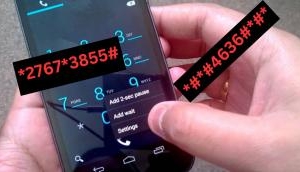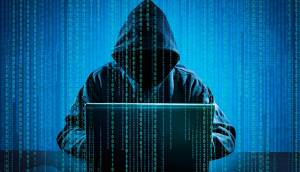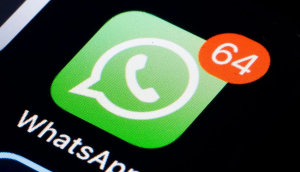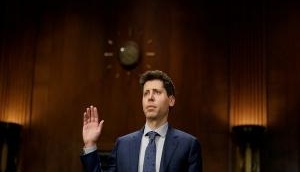
The US government has demanded Apple Inc to take an unprecedented step which jeopardises the security of Apple users. Since Apple prioritises the security of its customers, the tech major has opposed this order suggesting that it "has implications far beyond the legal case at hand".
While Apple Inc has locked horns with FBI and the US court in the San Bernardino case, the tussle between the two parties is making headlines everywhere.
If you're still unaware of the entire case, here's a quick recap:
The San Bernardino Case
A deadly act of terrorism last December left 14 people dead while 22 were seriously injured. The couple that carried out the shootings was chased by police and killed.
Enter FBI
Following the shooting, FBI approached Apple for help, as one of the terrorists, Syed Rizwan Farook, was using an iPhone. Apple, as the company states, "worked hard to support the government's efforts to solve this horrible crime."
In a blog titled 'A Message to Our Customers', Apple states, "When the FBI has requested data that's in our possession, we have provided it. Apple complies with valid subpoenas and search warrants, as we have in the San Bernardino case. We have also made Apple engineers available to advise the FBI."
The clash between Apple and US government
The US government has now demanded that Apple unlock the encrypted iPhone belonging to one of the terrorists. The FBI and government want Apple to disable some of its passcode protections. So far, Apple has pushed back and maintained that the move would set a dangerous example and threaten customer security.
"The clash between Apple and the Justice Department has driven straight to the heart of a long-running debate over how much law enforcement and intelligence officials should be able to monitor digital communications", reports Reuters.
How this could turn sour
As Apple states, "They have asked us to build a backdoor to the iPhone."
"Specifically, the FBI wants us to make a new version of the iPhone operating system, circumventing several important security features, and install it on an iPhone recovered during the investigation. In the wrong hands, this software - which does not exist today - would have the potential to unlock any iPhone in someone's physical possession."
"The FBI may use different words to describe this tool, but make no mistake: Building a version of iOS that bypasses security in this way would undeniably create a backdoor. And while the government may argue that its use would be limited to this case, there is no way to guarantee such control."
Threat to data security
While Google, Facebook and Twitter have come out in support of Apple over security issues, Microsoft founder Bill Gates said that he was "in disagreement with Apple CEO Tim Cook that the FBI's request would create an iPhone backdoor."
"This is a specific case where the government is asking for access to information. They are not asking for some general thing, they are asking for a particular case."
Speaking to Financial Times, Gates added, "It is no different than the question of should anybody ever have been able to tell the phone company to get information, should anybody be able to get at bank records. Let's say the bank had tied a ribbon round the disk drive and said don't make me cut this ribbon because you'll make me cut it many times."
Apple, while defending the argument, says that creating a backdoor for just one iPhone may sound like a clear cut solution, but it's not.
"In today's digital world, the "key" to an encrypted system is a piece of information that unlocks the data, and it is only as secure as the protections around it. Once the information is known, or a way to bypass the code is revealed, the encryption can be defeated by anyone with that knowledge."
The government may say that it may be used once on one phone but it is not true. Once created, the technique would be rehashed on multiple devices. Apple compares it to a master key capable of opening billions of locks.
It is clear that the government is asking Apple to hack its own users and undermine decades of research and hardwork that the company has put in to make the devices secure by bypassing its code.
Blackberry, another victim
Blackberry is known for its powerful security and privacy on its smartphones.
However, in July 2015, Pakistan banned Blackberry services in the country. There was a challenge that the Blackberry email service could not be tracked or decoded, which leads to the security reasons.
Blackberry's secure Enterprise Services (BES) is mostly used by the corporate sector to exchange private emails in an encrypted format preventing their scrutiny. For BES, the company operates the server and usually has it sitting somewhere within the corporate network. The IT department controls all aspects of the BES server, and it's likely sitting in a secure location within the data centre.
While FBI and US government maintain that the new hacking software they've asked Apple to develop is meant for just one iPhone.
While it still remains a question as to who will win the battle, Apple has a fair and valid point to make.








![BJP's Kapil Mishra recreates Shankar Mahadevan’s ‘Breathless’ song to highlight Delhi pollution [WATCH] BJP's Kapil Mishra recreates Shankar Mahadevan’s ‘Breathless’ song to highlight Delhi pollution [WATCH]](https://images.catchnews.com/upload/2022/11/03/kapil-mishra_240884_300x172.png)

![Anupam Kher shares pictures of his toned body on 67th birthday [MUST SEE] Anupam Kher shares pictures of his toned body on 67th birthday [MUST SEE]](https://images.catchnews.com/upload/2022/03/07/Anupam_kher_231145_300x172.jpg)






